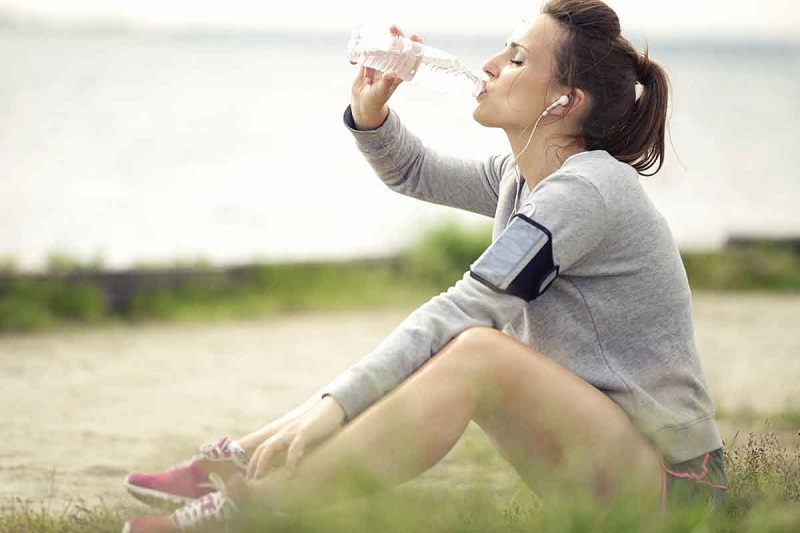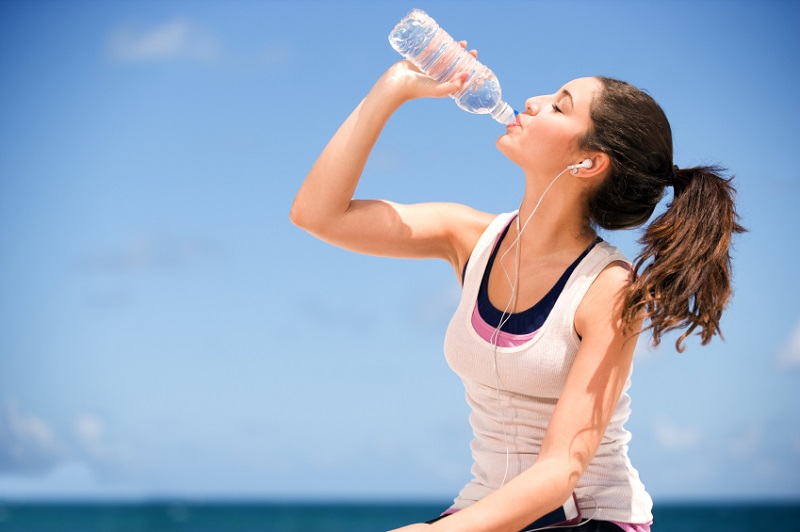Hydration: How much and what is recommended to drink?

Not only water, but also milk, fruit juices and herbs, but be careful not to abuse it.
Summer heat and strong sweating may increase body dehydration. When the body does not have the right amount of water it may have symptoms of poor hydration such as dry skin and dry mouth and fatigue.
To improve fluid intake to our bodies it is recommended to drink water and other beverages, such as herbal teas, milk and tea, but do not overdo it with doses. Abuse of other much more sugary liquids increases the risk of obesity, diabetes, and damage to the teeth.
Here’s the guide of the British Nutrition Foundation’s experts to nourish the body better …
What water is?
For proper hydration it is necessary to take the right amount of liquid per day. Water, in particular, is essential to our body. It is a great choice because, unlike other drinks, it does not produce calories and does not contain sugars, which are dangerous to the health of the teeth.
The British Nutrition Foundation’s guidelines define how much water to consume per day based on sex. Women are recommended to drink at least 1.6 liters of water per day; corresponding to 8 glasses of 200 ml. Men are strongly advised to take at least 2 liters per day, about 10 glasses of 200 ml.

Symptoms diabetes
How can you find out if you are drinking too little water and then your body starts to show signs of poor hydration? It is sufficient to identify certain dehydration symptoms that may be alarm bells to push you to drink more.
- Dry skin, it is the first signal that identifies that the body is not taking enough liquid;
- Exhaustion;
- Headache;
- Dark urine;
- Difficulty concentrating and making physical efforts.
If urine is too pale during urination, it may be the signal that you are drinking excessively. It is advisable to seek medical advice because abundant water consumption is as dangerous as not drinking enough.
You may also like to read: Six superfoods that are at your fingertips
Tea and coffee
As an alternative to water, other liquid substances such as tea and coffee could be taken. You could also opt for herbs or infusions. The caffeine contained in both drinks, if consumed in moderate amounts, may help the body hydration. Some subjects, such as pregnant women, should not abuse them: it is recommended to consume at most 200 mg per day. It should be considered that each cup of espresso contains 40 to 80 mg of caffeine, while a cup of tea can contain about 50 mg.
Milk
Even milk can help keep the body hydrated. In addition to containing a good amount of water, it brings many nutrients to the body, such as protein, vitamin A, B, D and calcium. However, it is recommended to pay attention to typology:
- Whole milk is indicated up to two years of age because it contains more saturated fat;
- Skimmed milk is recommended for children and adults. It has fewer calories, but has a smaller intake of vitamin A.
Shakes
Centrifuges and fruit juices in addition to providing plenty of water, also give vitamins, minerals and fibers. Smoothies can be valid substitutes for the five daily fruit portions that should be taken. The important thing is not to abuse fruit juices, because they contain many sugars that can damage your teeth.
Suggested sugar
Beverages contain water, but also large amounts of sugar that, if taken daily, can favor diabetes and obesity. It is recommended to choose “light” drinks, but without abusing them. Although they contain less sugar can increase the risk of developing type 2 diabetes.
Alcohol
Alcoholic beverages may seem like refreshing drinks, but actually increase the amount of water that is expelled through the urine. The consumption of wine and beer should therefore not exceed 14 weekly units for both men and women.
